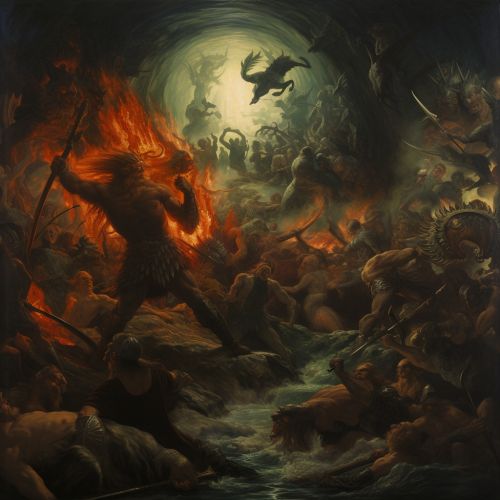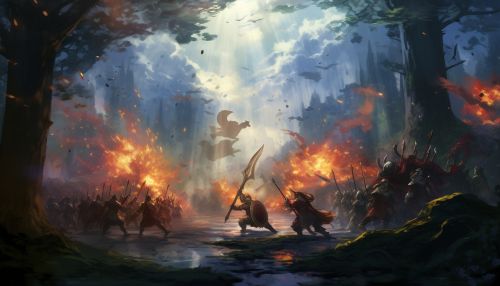Doom
Overview
"Doom" is a term that has been used in various contexts throughout history, often associated with concepts of fate, destiny, and the end of times. In the realm of mythology, literature, video games, and even scientific discourse, the term "doom" carries significant weight and connotations. This article will explore the various facets of "doom" in a comprehensive and detailed manner, delving deeper than general summaries and providing expert-level information.
Etymology
The word "doom" originates from the Old English word "dōm," which translates to "law" or "judgment." This term was used to denote the Last Judgment in Christian eschatology, where souls are judged by God. The term later evolved to signify ruin or death, reflecting the finality of the Last Judgment.
Mythology
In various mythologies, the concept of doom is often associated with prophecies or fates, particularly those that foretell the end of times or catastrophic events. For example, in Norse mythology, the term "Ragnarok" is often translated as "Doom of the Gods," referring to a series of future events including a great battle that ultimately leads to the death of several key figures in Norse mythology.


Literature
"Doom" is a recurring theme in literature, often used as a plot device in the form of prophecies or curses that the protagonists must overcome. One notable example is the "Doom of Mandos" in J.R.R. Tolkien's The Silmarillion, which is a prophecy foretelling the downfall of the Noldor, one of the races of Elves in the fictional world of Middle-earth.
Video Games
In the realm of video games, "Doom" is most notably recognized as the title of a series of first-person shooter games developed by id Software. The first Doom game, released in 1993, is considered one of the pioneering titles in the genre, known for its fast-paced action, horror elements, and multiplayer mode.
Scientific Discourse
In scientific discourse, "doom" is often used to discuss end-of-the-world scenarios or existential risks. For instance, the "Doomsday argument" is a probabilistic argument that claims to predict the number of future members of the human species given an estimate of the total number of humans born so far.
